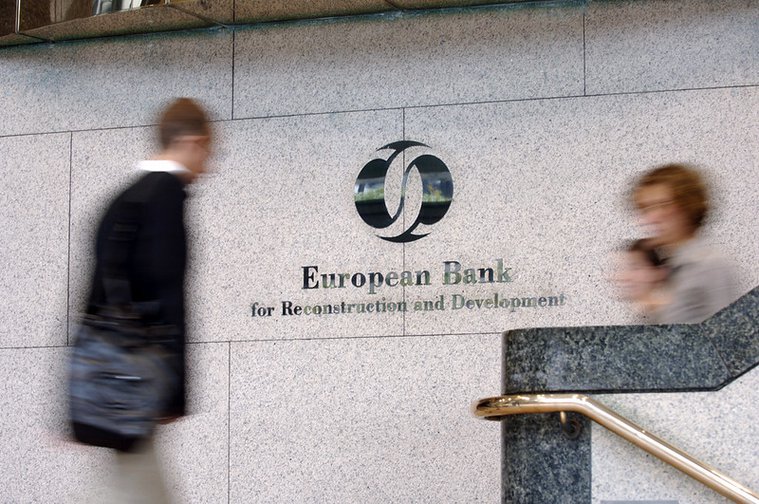At 30, the European Bank for Reconstruction and Development must do better on human rights
The bank has a mandate to promote democracy – so why is it investing in autocratic regimes?
 |
This week the European Bank for Reconstruction and Development (EBRD) is holding its annual meeting – which this year includes celebrating its 30th anniversary.
In 1991, the EBRD was set up to support countries in their transition to market economy and democracy. Indeed, its establishing charter includes a significant, yet often ignored provision that it may only carry out its purpose in countries of operations that are ‘committed to and applying the principles of multiparty democracy, pluralism and market economy’.
By 2021, though, it’s unclear what this mandate really means in practice. Last year, the EBRD’s annual investments reached a record high of €11bn. Yet a significant share of this sum went to autocratic regimes, which is at odds with the EBRD’s unique political mandate.
In a new report from Bankwatch and our partners, we highlight this mismatch between the EBRD’s current lending approach and its mandate. This is obvious looking at Turkey and Egypt – the countries that received the lion’s share of the bank’s funding in 2020.
The EBRD claims that it follows a rule of ‘more for more, less for less’ when it comes to the state of democracy and freedoms, and that it focuses investments on the private sector, thus setting autocratic countries on the right path.
At closer inspection, both claims reveal significant inconsistencies and shortcomings of the EBRD’s lending strategy.
More for less?
The rule not to invest less money in a country that is backtracking on democratic reforms or abusing human rights is clearly not applied consistently to all of EBRD’s countries of operations.
The bank is currently reconsidering its investments in Belarus, but how else to explain the near doubling of EBRD’s investments in Turkey in 2020? In spite of the ongoing human rights crisis and deteriorating democracy in the country, during her recent visit, the EBRD president, Odile Renaud-Basso, promised the same record levels of investments in 2021. Meanwhile, she failed to mention anything about the democratic deficit in the country.
Loaning to the private sector in autocratic countries helps the EBRD avoid tough questions about fueling authoritarian regimes, but the answer is not as easy as going private
Similarly, the EBRD is pouring money into Egypt, one of its largest countries of operation, despite severe human rights violations and authoritarian rule. In April 2021, 27 civil society organisations urged the EBRD follow its political mandate and urgently address the deteriorating situation in Egypt. The bank is currently preparing a new strategy for Egypt – and it will need to spell out how the ‘more for more, less for less’ principle will be applied.
The EBRD should set benchmarks for political reforms for each of its countries of operations – and must invest its political capital to urge governments to show clear and measurable commitments to democracy, human rights, access to justice and the rule of law.
Private is better?
Loaning to the private sector in autocratic countries helps the EBRD avoid tough questions about fueling authoritarian regimes, but the answer is not as easy as going private.
The EBRD’s private sector clients are often benefiting from a weak rule of law, dysfunctional judicial systems and the perks of crony capitalism through fast-tracked permitting, sectoral monopolies, tax breaks, state grants and all sorts of other state interventions.
In deeply autocratic states, the private sector is also not immune to systematic abuses of human rights. Land confiscations, police sent to quash protests, SLAPPs (strategic lawsuits against public participation) served left and right, are some of the examples of what can happen at controversial EBRD-supported investments in the private sector.
In one of the most extreme cases, the EBRD found itself effectively supporting the trade in cotton produced using forced labour in Turkmenistan. It is doing so by loaning money to a logistics company extensively involved in cotton handling.
In Uzbekistan, the privatisation of the cotton sector has resulted in eradication of forced labour in some clusters, but it has failed to address concerns about access to land and livelihoods, and proper working conditions.
The EBRD must acknowledge that in many countries the frontier between the public and private sectors is often blurred. This is why its operations should go through strict risk assessment and due diligence, to ensure robust human rights safeguards are in place.
At 30, the EBRD should celebrate and uphold its unique mandate. To live up to the promise of its founders, the bank needs to actively work to open up space for good governance and democratic participation. Open policy dialogue with governments and institutions should strengthen investments that ‘do not harm’ and deliver real benefits to people in our countries.


No comments:
Post a Comment
Note: only a member of this blog may post a comment.